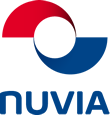Disposal of Contaminated Oils
Radioactively contaminated oil wastes are a common by-product of the nuclear industry and are usually incinerated. However, where incineration is difficult to achieve, contaminated oils are stored awaiting the development of an appropriate disposal route. The challenge is to reduce the amount of stored oil by finding methods of removing particulates that may prevent incineration therefore reducing the stored waste.
Opportunity
Challenge opens
20/03/2019
Challenge closes
04/06/2019
Benefit
The NUiX challenge competition, delivered by the KTN, is supporting Tier 1 and Tier 2 companies (the Challenger) to identify innovative solutions to its innovation challenges. The winning business(s) in this competition will be given an opportunity to pitch their solution and potentially receive support from the KTN and the wider InnovateUK network.
Background
The Nuclear Innovation Exchange (NUiX) is supporting a challenge holder to identify transferable solutions for its innovation and customer needs.
Radioactively contaminated oil wastes are a common by-product of the nuclear industry and are usually incinerated where the characteristics of the oil allow this disposal route. However, where incineration is difficult to achieve, for a variety of reasons other disposal treatment solutions are sought. Currently difficult to treat contaminated oils are stored awaiting the development of an appropriate disposal route1.
The challenge is to reduce the amount of stored oil by finding methods of removing particulates that may prevent incineration therefore reducing the stored waste.
It is expected that solutions may exist in some of the following sectors:
- Oil and Gas sector
- Chemical Industry
- Civil Engineering
- Ceramics Technology
- Water Treatment Industry
- Sensors
- Food Machinery
To meet the desired timescale and risks, it is preferred that the proposed solution, or the key part(s) of the solution, has been previously demonstrated in an industrial environment (>TRL 3). The solution should be achievable within health and safety requirements and regulations.
Rewards and Benefits
Successful applicants will be given an opportunity to pitch to the challenge holder. The package may also include:
- Support from the challenge owner to develop / commercialise the technology
- Support from the Catapults or the KTN to identify development funding opportunities
- Support in the development of a prototype or pilot study (value between £50k & £100k)
- Technical support
- A place in KTN or Catapult events
- A potential business collaboration
Solution Requirements
Functional Requirements
- A functional solution is sought which consist of some or all of the following functional requirements:
- A solution capable of identifying and then removing non-active and / or active solids from oil without increasing the overall amount of contaminated waste product
- The relative density of the particulates may be similar to oil and therefore may negate the use of a centrifuge
- Ability to encapsulate contaminated particulates or contaminated oil to meet current industry standards2
- Encapsulation technique which can demonstrate no leaching of the oil or waste products
Technical Characteristics
- Whilst there are many oil waste streams within nuclear decommissioning the focus of this challenge is:
- Oil with active solids (oil containing active solids such as swarf or activated wear products)
- Oily water (a mixture of oils and water with water content up to 50%)
- Oil contaminated solids (oily rags and oil-soaked wastes)
- Particulates within the oil have a range of sizes (microns to aggregates of mm size particulates)
- Technical characteristics could include but are not limited to Pyrolysis; Plasma treatment; Absorption; Centrifugation; Filtration; Physical / Mechanical Decontamination; Electrochemical treatment or Wet oxidation
Deployment Timescale
- Validation of solution: within 1 year
- Field trials: within 1-2 years
- Commercial implementation: within 3 years (sooner if possible)
Operating Conditions
In assessing the viability of a solution, the challenge owner will consider the impact of the produced waste stream, nature and extent of radioactive contamination, technical effectiveness, technological readiness, nature and disposability of products, discharges, economic issues and safety issues
Cost requirement and market opportunity
- The organisation responsible for ensuring that lower activity waste is managed effectively across the UK, The Low Level Waste Repository (LLWR), provide inventory information on over 68 waste streams representing oils which are currently assumed to be unsuitable for incineration. This includes over 40 waste streams which fit into categories for this challenge
- There are over 670m3 of oil including over 400m3 of oil containing solids (inc. active solids) in the UK alone
- There are also other significant commercial opportunities outside of the Nuclear Decommissioning Authority estate to be considered
Eligibility and assessment criteria
Entrants to this competition must be:
- Established businesses, start-ups, SMEs or individual entrepreneurs
- UK based or have the intention to set up a UK base
Applications will be assessed on:
- Relevance to the topic
- Innovative nature of the subject
- Coherence of the proposed business model
- Feasibility/ economic viability
- Development potential
- Maturity of project/solution
- Ability to launch project quickly/Ease of implementation
- Price/quality ratio
- Suitability for the Global Market
IP and Potential Commercial Route
- Existing background IP associated with a potential solution will remain with Solution Provider(s). Where any new IP generation is envisaged, it will be subject to the mutual IP agreement of the Solution Provider(s) and Innovation Challenger.
- Any commercial deployment of transferred solution or newly developed solution, through licensing, joint venture, partnership or direct investment, will be subject to the commercial agreement between the Solution Provider(s) and Innovation Challenger.
- Where necessary, a non-disclosure agreement (NDA) may be signed to uphold confidentiality in the engagement between the Solution Provider(s) and Innovation Challenger.
- Innovate UK and KTN do not take any share of IP ownership or enter into commercial venture through the NUiX programme.
This challenge is brought to you by:


